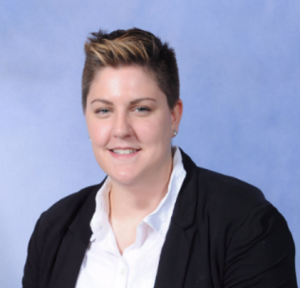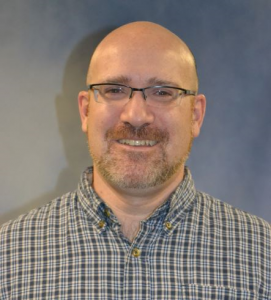In this series of articles titled “Tomorrow’s World,” members of the Excelsior College faculty reflect on the changes taking place in their field and consider how those changes might impact someone planning a career in that discipline.
Disclaimer: Opinions expressed are solely my own and do not represent the views or opinions of my employer.
Transportation, logistics, and operations management are at the core of the global supply chain, encompassing manufacturing, distribution, retailing, recreation, and national security industries. There is a growing demand for professionals capable of executing and overseeing the procurement, warehousing, and transporting of goods in an increasingly global market and business environment. Logistics management is the process of planning, preparing, implementing, and evaluating all logistics functions that support an operation or activity.

Logistics Future Challenges: The Growth of Global Demand
One of the largest challenges in logistics is the current growth rate of jobs. According to the U.S Department of Labor, 270,000+ logistics-related job openings will need to be filled every year from now until 2024. These openings will keep pace with projected industry growth and equate to 2.16 million job positions nationwide. These positions fall into six separate categories, including logistics operations; industrial engineering; warehousing and distribution; trucking; freight rail; and air cargo supervisor.
The Skills of the Logistician
Maintaining the proper skill set is challenging, and for logisticians, those skills need to be able to transfer into multiple areas like air, rail, road, and sea movement. In addition, logistics professionals require skills in supply chain management, including addressing global supply chain challenges. Logistics skill sets include transportation and inventory management; transportation sector requirements (road, air, rail, water, and pipeline) and challenges; reverse and lean logistics; warehousing; distribution; logistics technology, economics, and globalization; and intermodal or multimodal movement.
Career Readiness in Logistics
In this dynamic, ever-changing business-technological environment, there is a need for organizations to integrate business, process management, and technical skills to solve challenging logistics problems. “U.S. businesses spent $1.3 trillion on logistics-related costs to make all this commerce flow” (U.S. DoL, 2015). Moreover, the average salary for supply chain and logistics professionals has been steadily increasing and reached $115k annually in 2015 (Logistics Management 30th Annual Salary Survey, 2015). Finally, our nation’s 7,600+ educational institutions currently generate more than 75,000+ formally trained, degreed, or certified logistics workers each year. These trained workers are expected to fill only approximately 28 percent of the logistics-related job openings that are projected to be available every year (Logistics Management Annual Salary Survey, 2015).
Certifications and Credentials of Competence
Learners who enter the workforce with industry certifications bolster their resume and present a willingness to learn more about a specific subject matter. Most industry certifications target a specific job role or skill set. Potential partnerships with notable industry associations and certifications include:
- Institute of Supply Management (ISM®).
- Certified Professional in Supply Management® (CPSM®)
- Certified Professional in Supplier Diversity® (CPSD™)
- American Society of Transportation and Logistics
- Global Logistics Associate (GLA)
- Distinguished Logistics Professional (DLP)
- Transportation & Logistics (CTL)
- Professional Designation in Logistics and Supply Chain Management Professional Certification (PLS)
Careers in Logistics for Tomorrow’s World
The demand for logistics professionals is not going away in the near or distant future. On all geographic levels, projections estimate faster-than-average growth for logistics occupations. Government-affiliated organizations list logisticians and logistics managers as “bright outlook” occupations. According to Logistics Management’s 30th Annual Salary Survey, some of these professions and their average salaries (equivalent degree-level requirements) include logistics director/manager professional ($109,760 – bachelor’s to master’s-level degree), supply chain director/manager ($114,275 – bachelor’s to master’s-level degree), operations manager ($98,235 – bachelor’s to master’s-level degree), purchasing/procurement director/manager ($85,070 – bachelor’s-level degree), warehouse director/manager ($84,730 – bachelor’s-level degree), traffic manager $69,480 – associate to bachelor’s-level degree), and coordinator/analyst ($67,000 – associate to bachelor’s-level degree).
These professions are projected to grow faster than average, have 100,000+ job openings, and are new and emerging fields. Excelsior College helps learners meet the demands of the industry with its logistics management concentration in its business program. The program prepares students in supply chain management; lean logistics; project management; quality control; and transportation, warehousing, and distribution. The Bureau of Labor Statistics projects that logistics jobs that require these skills will grow at a faster-than-average pace, estimating 22 percent job growth between 2014 and 2024. This growth trend reveals that it is a prime time for learners to acquire crucial logistics skill sets. Click here to learn more about Excelsior College’s Business Degrees.
References
Bright Outlook Occupations: Logistics. O*NET Online. http://www.onetonline.org/help/bright/
Logistics Management’s 30th Annual Salary Survey. Retrieved from http://www.supplychain247.com/article/logistics_managements_30th_annual_salary_survey
U.S. Bureau of Labor Statistics (2016). Occupational Employment Statistics. Retrieved from http://www.bls.gov/oes/
U.S. Bureau of Labor Statistics (2016). Occupational Outlook Handbook. Retrieved from http://www.bls.gov/oes/ooh/About/Occupational-Information-Included-in-the-OOH.htm/
U.S. Department of Labor (2016). Employment Trends in the Logistics Industry Cluster. Retrieved from doleta.gov/performance/results/AnnualReports/docs/2016_State_Plans/Economic_Reports/




